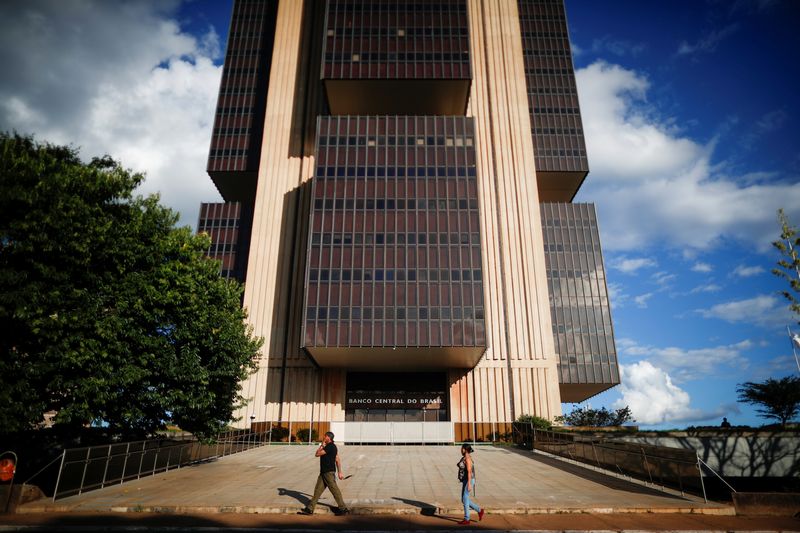By Marcela Ayres
BRASILIA (Reuters) -Brazil's central bank on Wednesday kept interest rates at 13.75% for the third consecutive policy decision, highlighting fiscal uncertainties arising from a spending boost planned by leftist President-elect Luiz Inacio Lula da Silva.
The decision by the bank's Copom rate-setting committee was the first since Lula's Oct. 30 election victory.
Although the bank was widely expected to hold rates steady, its flagging of Lula's spending plans and their possible impact on inflation adds to a growing chorus of concerns from investors who have sold Brazilian assets.
"The committee will closely monitor future developments in fiscal policy and, in particular, its effects on asset prices and inflation expectations, with potential impacts on the dynamics of future inflation," said the central bank in its statement, stressing fiscal uncertainty is now "heightened."
Jose Marcio Camargo, chief economist at Genial Investimentos, said the bank's emphasis on fiscal concerns was the "most important signal" of its statement, although he said it was perhaps less harsh than expected given the high amount of extra spending sought by the incoming government.
"Our base scenario after the transition government's proposal is of a rise in interest rates in 2023, probably in the second half, because the inflation rate should rise," he said.
After 12 consecutive hikes that raised Brazil's benchmark interest rate to a near six-year high from a record-low of 2% in March 2021, the central bank paused its tightening cycle in September amid signs inflation was starting to be tamed.
Ever since then, the focus had turned to when the bank might begin easing monetary policy in Latin America's largest economy, despite policymakers' warnings that they could resume hikes if prices did not fall as expected. That message was reinforced in Wednesday's statement.
However, in the wake of Lula's victory and his multi-billion proposal to ramp up social spending, bets on rate cuts became more conservative.
Lula's spending bill, which faces a Senate vote on Wednesday, is expected to put pressure on public debt, implying higher financing costs for the government's hefty interest bill, and threatening a shift in monetary policy.
The central bank has spoken positively about Brazil's improved inflation outlook, having fallen from recent double-digit highs, but has also flagged the country's fiscal policy under Lula as a focus of uncertainties.
Brazil's inflation decelerated to 6.17% in the 12 months to mid-November, still above the 3.5% target for this year.
The central bank increased its inflation forecast this year to 6.0%, from 5.8% before.

For 2023 and 2024, which comprise the bank's policy horizon, inflation projections are now at 5.0% and 3.0%, respectively, from 4.8% and 2.9% before. The official targets are inflation at 3.25% next year and 3% in 2024.
The bank's decision to hold its Selic benchmark interest rate was expected by 31 of 32 economists polled by Reuters.